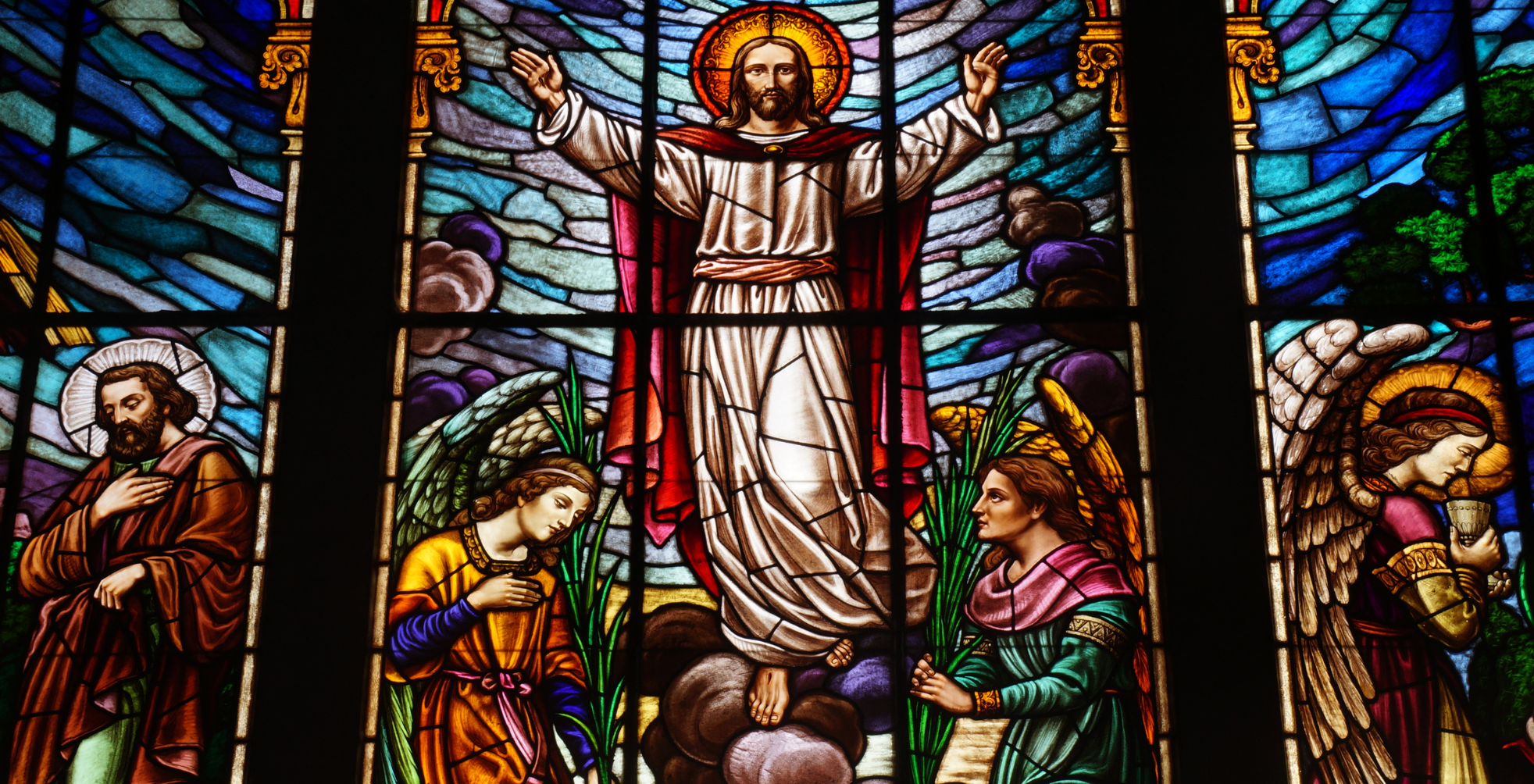What Catholic Families Should Know About Online Learning: 10 Myths and the Truth Behind Them
Online learning has many benefits for today’s middle and high school students. There are many reasons why Catholic parents should consider online...

Homeschooling families know that at-home learning means more than just excellent academics—it’s an opportunity to nurture the whole child: mind, body, and spirit. Catholic homeschool families can intentionally integrate their faith into academic goals, daily lessons, and family life. In this article, we’ll guide your homeschooling family through actionable strategies to integrate Catholic values and rigorous learning into your at-home learning experience, whether you are just beginning your homeschool journey or looking to renew your approach.
Let’s begin by laying the foundation. At the heart of Catholic homeschooling is a beautiful truth rooted in Church teaching: parents are the primary educators of their children. This belief isn’t just a suggestion—it’s a vocation supported by Sacred Scripture and affirmed by the Church: “Parents have the first responsibility for the education of their children.” (Catechism of the Catholic Church, 2223)
Homeschooling offers a sacred opportunity to live out your vocation as a parent in a deeply intentional way. By choosing a Catholic homeschool path, you're saying “yes” to your child’s spiritual and academic growth in a unified way. This approach fosters trust, strengthens family bonds, and allows your home to become a school where academic learning, family faith, and discipleship can thrive. With the lens of faith integrated in each subject and lesson, you are nurturing not just a student, but a disciple of Jesus Christ and a future saint.
While parents are the first teachers, we are not meant to educate in isolation. Community support and resources like Catholic Virtual exist to partner with you—providing curriculum, teachers, tools, support, and guidance needed to confidently lead your child’s education.
Discover what an online Catholic education looks like and how it will benefit your child.
One of the most important decisions for any Catholic homeschool family is selecting the right curriculum. With so many options available, it’s essential to choose one that not only reflects your family’s values and academic goals but is also flexible, accessible, and accredited.
When evaluating curriculum providers, consider the following criteria:
Choosing a curriculum that meets these standards will help you focus more on your child’s growth—and less on logistics.
Catholic Virtual offers a full catalog accredited online courses for grades K–12 that support the needs of homeschool families. Their programs are designed to make learning both manageable and mission-driven, combining academic rigor with a strong spiritual foundation.
Parents can access the Catholic Virtual Course Catalog to review current offerings, including core subjects, electives, and college preparatory courses. Whether you're supplementing your own curriculum or seeking a full online program, Catholic Virtual provides a trusted, flexible path forward rooted in both academic excellence and spiritual growth.
For Catholic homeschoolers it is important to build a home environment where faith and learning naturally go hand in hand. Creating and managing your Catholic homeschool begins with intentionality.
One of the benefits of homeschooling is the ability to make a schedule that works best for both the learners and the family. No matter your schedule, there are many ways to integrate faith into a homeschooling routine. You might consider:
Designate learning spaces as well as a sacred space in your home or learning environment. Be sure that learners have everything needed for their studies. Similarly, designate a small prayer corner or home altar with a crucifix, saint statues, a Bible, and seasonal liturgical elements. This space can be a gathering space as well as a visual reminder that God is always part of your family’s educational and faith journey.
Spiritual formation is an essential element of Catholic homeschooling. A well-designed Catholic homeschool curriculum lays the academic and theological foundation. Families can complement a chosen curriculum with faith-enriching experiences that are both meaningful and manageable, no matter a child’s age or grade. Here are some ideas.
The Bible isn’t only a theology resource—it’s a gateway to literacy, history, and art. Use Scripture stories to enhance learning across disciplines. These connections help students see Scripture as a living part of their learning experience and Church history.
The Church’s liturgical calendar is rich with opportunities to engage children through hands-on, seasonal learning. By observing feast days, saints’ memorials, and liturgical seasons, families can experience the rhythm of the Church in daily life. This helps children of all ages develop an awareness of sacred time and a deeper connection to the life of the Church.
Try incorporating:
Faith becomes real when children learn to apply it to the world around them. Share Catholic news articles and discuss current events. Explore Catholic Social Teaching through age-appropriate conversations about dignity, justice, and stewardship. You might encourage learners to research modern-day saints or Catholic leaders making a difference. These activities foster compassion and help students see how the Church responds to the needs of the world.
Incorporating Catholic books and media into your at-home learning can inspire young minds and supplement your curriculum with faith-filled storytelling. Stories grounded in Catholic values help children see virtue in action and connect emotionally with the teachings of the Church. Whether you’re reading aloud as a family or watching a video together, these shared experiences can spark meaningful conversations and reinforce the moral and spiritual lessons children are already learning.
Creating a Catholic homeschool is about forming hearts and minds and at-home learning offers wonderful opportunities to grow in faith together. By choosing a rigorous Catholic curriculum, shaping your homeschool around the rhythms of the Church, prioritizing spiritual growth, and using the many rich resources from the Catholic tradition, you’re not only providing an excellent education—you’re preparing your children for a lifetime of discipleship.

Online learning has many benefits for today’s middle and high school students. There are many reasons why Catholic parents should consider online...

Catholic Schools Week, celebrated every year from the last Sunday in January through the following Saturday, honors the impact and value of Catholic...

Advent is a sacred season of waiting and wonder. Over these four weeks, the Church invites families to prepare their hearts for Christ’s coming....